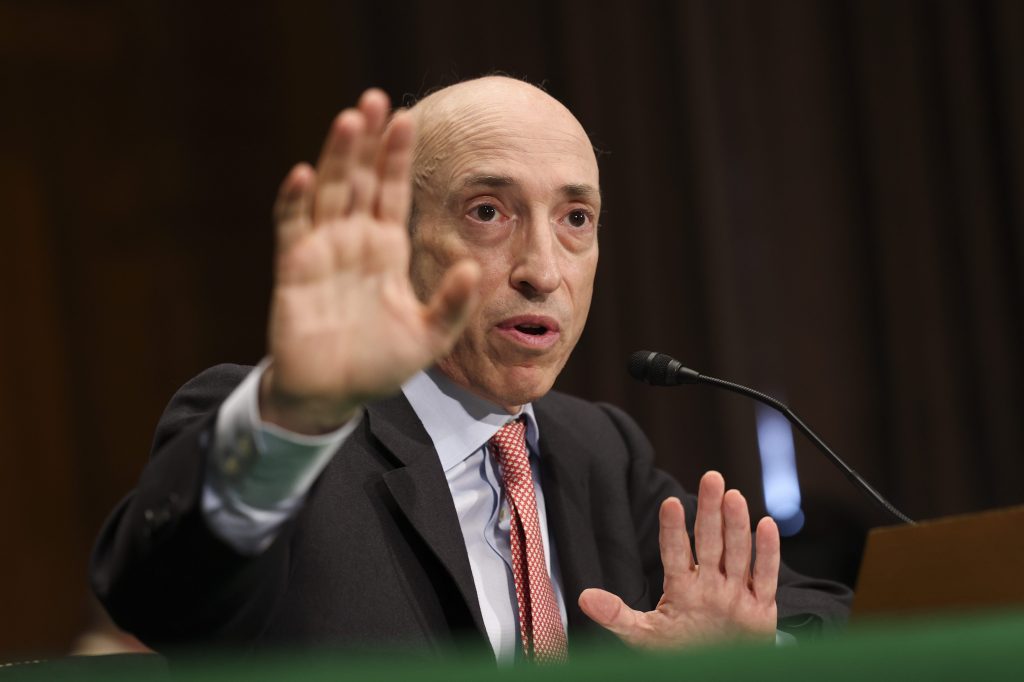The SEC has adopted new disclosure rules related to the repurchases of an issuer’s equity securities with the stated goals of increasing transparency, competition, and efficiency in what has grown to be a more than $1.25trn share-repurchase marketplace.
The new requirements include having issuers provide daily repurchase activity on a quarterly or semi-annual basis, depending on the type of issuer. The regulator said the amendments will improve disclosure and provide investors with enhanced information to assess the purposes and effects of share repurchases.
Why the rule?
The SEC is trying to rein in these transactions, as share repurchases often drive a stock’s price higher and return cash to investors at the expense of providing liquidity that could help the business cope when sales and profits decline in an economic downturn.
They have also been criticized for rewarding investors and executives (who often own a good amount of their corporation’s stock) at the expense of putting money into employee salaries and hiring, or into technology and enhanced production capabilities.
Buybacks at the largest companies – those listed on the S&P 500 Index – hit a record $923bn in 2022.
SEC Chair Gary Gensler said in a statement when announcing the amendments: “Through these disclosures, investors will be able to better assess issuer buyback programs. The disclosures will also help lessen some of the information asymmetries inherent between issuers and investors in buybacks. That’s good for investors, issuers, and the markets.”
What does it require?
The amendments will require issuers to disclose daily quantitative share repurchase information either quarterly or semi-annually. (Right now, issuers provide monthly aggregates in their quarterly reporting.)
The required disclosures include, for each day on which a repurchase was conducted, the number of shares repurchased that day and the average price paid, among other things.
Issuers will also be required to include a checkbox indicating whether certain officers and directors traded in the relevant securities in the four business days before or after the announcement of the repurchase plan or program.
Further, the amendments will revise and expand narrative repurchase disclosure requirements to require that an issuer disclose:
- the objectives or rationales for its share repurchases and the process or criteria used to determine the amount of repurchases; and
- any policies and procedures relating to purchases and sales of the issuer’s securities during a repurchase program by its officers and directors, including any restriction on such transactions.
Finally, the amendments will add a new item to Regulation S-K to better allow the Commission and other market participants to observe how issuers use Rule 10b5-1 plans. In other words, companies will need to provide rationales for buybacks and disclose any policies they have internally to limit insider transacting during a repurchase program.
Who voted for and against?
Commissioners Hester Peirce and Mark Uyeda voted no and issued written dissents from the SEC’s majority vote on the new amendments.
Peirce lamented the lack of “sensible exceptions” to a rule subjecting companies to immaterial disclosures and fails to see the big problem the majority used to justify its rulemaking.
She does not find it persuasive that share repurchases could be used to increase management compensation or to affect various accounting metrics rather than increase firm value.
She points out that share repurchases can help businesses return excess cash to shareholders with greater tax efficiency than dividends. She says shareholders who chose to sell their shares back to the company can reinvest the proceeds into companies that need cash, moving capital in an efficient and helpful manner. Share buybacks can also be used as an investment when shares are viewed as undervalued, she observes.
Uyeda expressed his dismay that foreign private issuers will now have to make quarterly filings to report share repurchases, regardless of their home country’s disclosure requirements. He said that was a departure for the SEC; the agency normally shows more deference to another country’s reporting requirements.
How bad are these share buybacks?
Share buybacks can starve companies of the needed resources to make other types of investments with the money – mainly to enrich shareholders and executives.
And it’s true that they can starve companies of much-needed cash – like when Lehman Brothers Holdings Inc. bought back a ton of its stock in 2007 and the first half of 2008 – only to go bust about six months later. And Citigroup repurchased more than $20bn in shares from 2004 to 2008 – right before needing to be rescued in a bailout by the federal government during the financial crisis. (See this WSJ piece mentioning a few of the good, bad and not quite either consequences following corporate share repurchases and possible reasons for them.)
One study shows that buybacks undertaken to meet analyst earnings forecasts lead to cuts in employment and investment.
But there is also proof that Commissioner Peirce has a point about investors redeploying that money to other businesses needing the money.
And there are other studies (see here and here) showing that buybacks typically occur when growth opportunities are poor and when businesses truly have surplus cash, rather than when other growth options are available or money is scant.
So maybe the question of bad versus good is not so straightforward and has at least something to do with the stage of the company’s growth, market forces, and investor choices, along with sometimes overly and untimely rewarding a group of well-compensated people.
When?
Foreign private issuers will need to disclose the quantitative data in new Form F-SR beginning with the Form F-SR that covers the first full fiscal quarter that begins on or after April 1, 2024, and provide the narrative disclosure starting in the first Form 20-F filed after their first Form F-SR has been filed.
Registered closed-end management investment companies that are exchange traded must disclose the quantitative data and provide the narrative disclosure on Form N-CSR beginning with the Form N-CSR that covers the first six-month period that begins on or after January 1, 2024.
All other issuers will be required to include the quantitative data as an exhibit to their Forms 10-Q and 10-K and provide the narrative disclosure in their Forms 10-Q and 10-K beginning with the first filing that covers the first full fiscal quarter that begins on or after October 1, 2023.













